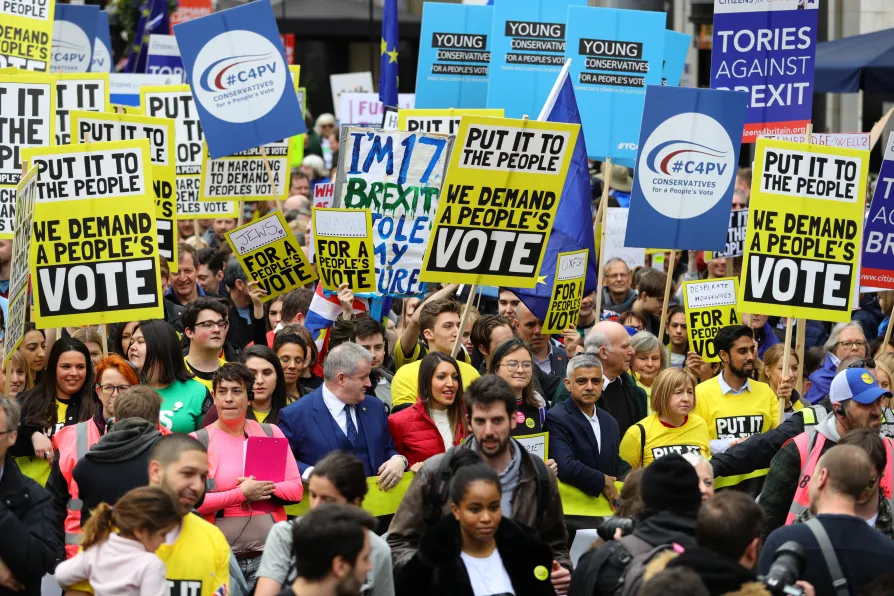NICK TROY lauds the young staff at a hotel chain and cinema giant who are ready to take on the bosses for their rights
The London crowd: from the People’s Vote marches to the Brexit rally

 Anti-Brexit campaigners on a protest in March last year
Anti-Brexit campaigners on a protest in March last year
THE several thousand people who gathered in Parliament Square on the evening of Friday January 31 appeared from all the pictures that I saw to be mainly men of a certain age.
How can we characterise such a crowd? It was certainly not one of protest, since the object was to mark the departure of Britain from the EU, which was something achieved by the current Conservative government.
It may have had aspects of the mob to it, but reports suggest it simply dispersed fairly peacefully at the end of proceedings.
Similar stories

Who you ask and how you ask matter, as does why you are asking — the history of opinion polls shows they are as much about creating opinions as they are about recording them, writes socialist historian KEITH FLETT

The legacy of an 1820 conspiracy in revenge for Peterloo resonates down the ages, argues KEITH FLETT

Despite his wealthy background and membership of a secretive aristocratic occult club, the radical politician forged an alliance with the working class to fight for democracy and free speech against the Georgian elite, writes MAT COWARD

Every few years, it seems like the ‘right time’ to build a new left party — but what are the right conditions, asks socialist historian KEITH FLETT, looking back at the last two centuries and the insights of Ralph Miliband and EP Thompson










